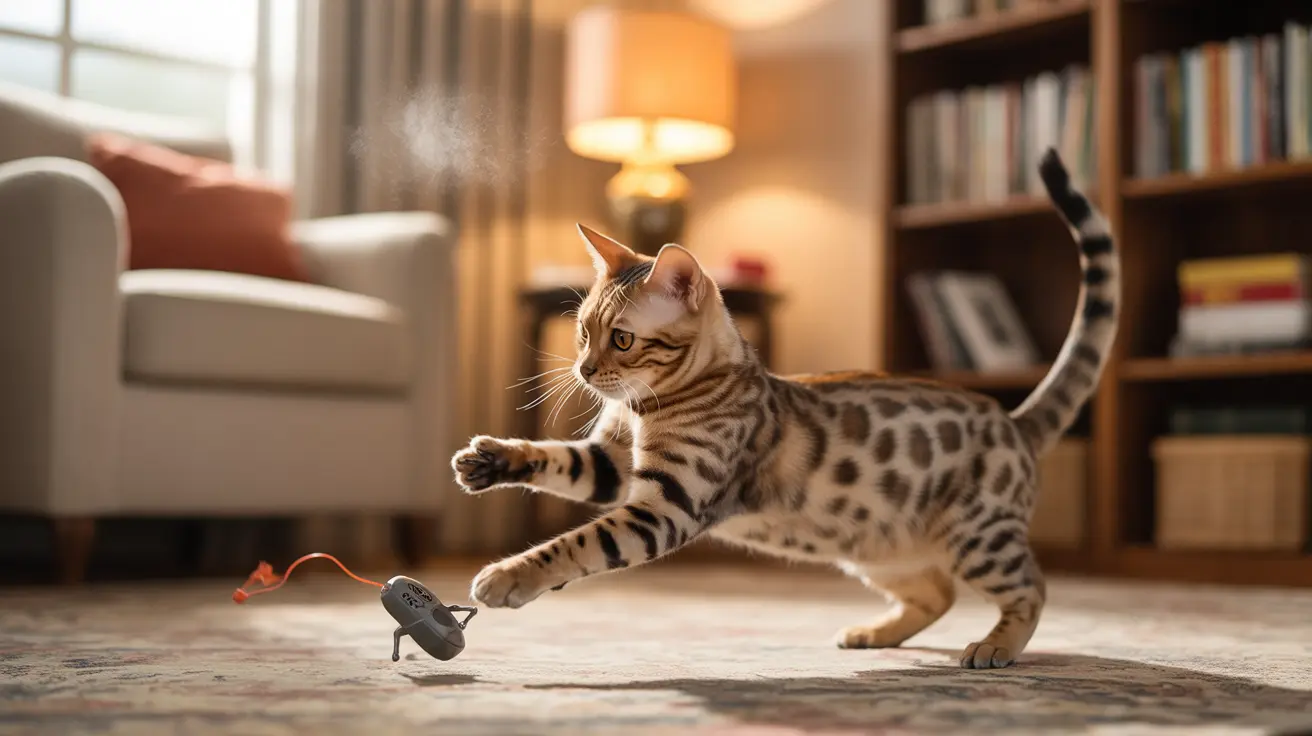Ever wondered about your cat's perspective on how they get their meals? The relationship between cats and their food sources is fascinating, deeply rooted in their evolutionary history as skilled hunters. While we diligently fill their food bowls each day, our feline friends might have a more complex understanding of food acquisition than we realize.
Understanding how cats perceive human food provision not only offers fascinating insights into feline psychology but also helps us better meet their behavioral and emotional needs. Let's explore the intricate relationship between cats, hunting instincts, and their human food providers.
The Natural Hunter's Mindset
Cats are hardwired hunters, with instincts that remain sharp regardless of domestication. Even well-fed house cats maintain their predatory drive, spending several hours daily engaging in hunting-related behaviors. This isn't just about sustenance – it's a fundamental part of their psychological well-being.
Research shows that cats dedicate 3-10 hours daily to hunting-related activities, even when they have reliable food sources. This behavior stems from their evolutionary past, where frequent small meals were necessary for survival.
Understanding Your Cat's Food Perception
While cats recognize humans as food providers, they likely don't view us as fellow hunters. Instead, they see us as reliable food sources – much like a consistently productive hunting ground in nature. This relationship is more complex than simple dependency; it's a sophisticated social arrangement that has evolved through thousands of years of domestication.
Cats demonstrate their understanding of this relationship through various behaviors, including specific meowing patterns used only with humans and timing their food requests to match our daily routines.
The Mystery Behind "Gifts" from Your Cat
When cats bring home prey or toys, they're not necessarily suggesting we're poor hunters. This behavior more likely stems from their instinct to teach hunting skills, similar to how mother cats train their kittens. It's a sign that they consider us part of their social group, worthy of receiving these important "lessons."
Supporting Your Cat's Natural Instincts
To maintain your cat's psychological well-being, it's crucial to provide outlets for their hunting instincts. This can include:
- Interactive play sessions that mimic hunting sequences
- Food puzzle toys that require problem-solving
- Hidden treats around the house to encourage "hunting"
- Vertical spaces for stalking and observation
The Role of Play in Satisfying Hunting Drives
Regular play sessions that simulate hunting scenarios are essential for indoor cats. These activities help prevent behavioral issues, reduce stress, and maintain physical health. Using toys that move unpredictably, like wand toys or battery-operated mice, can provide the most satisfying experience for your cat.
Frequently Asked Questions
Do cats think humans hunt for their food like they do?
No, cats likely don't think humans hunt for their food. Instead, they view humans as reliable food providers or sources of sustenance, similar to how they might view a productive hunting territory in the wild.
Why do cats hunt even when they're well fed by their owners?
Cats hunt regardless of hunger because hunting is an instinctive behavior not solely tied to hunger. This behavior is deeply ingrained and serves multiple purposes, including mental stimulation and stress relief.
What does it mean when my cat brings me dead prey?
When cats bring you prey, they're likely exhibiting teaching behavior similar to how mother cats teach their kittens to hunt. It's a sign they consider you part of their social group.
How can I satisfy my cat's hunting instincts indoors?
Provide interactive toys, food puzzles, and regular play sessions that mimic hunting behavior. Hide treats around the house and create vertical spaces for stalking and observation.
Do indoor cats still need to hunt and play for enrichment?
Yes, indoor cats absolutely need opportunities for hunting-like play and enrichment. These activities are crucial for their mental and physical well-being, helping prevent behavioral issues and obesity.
Conclusion
While cats may not think we hunt for their food, understanding their natural instincts and providing appropriate outlets for these behaviors is crucial for their well-being. By incorporating hunting-like activities into their daily routine, we can help our feline friends maintain both physical and mental health while strengthening our bonds with them.






